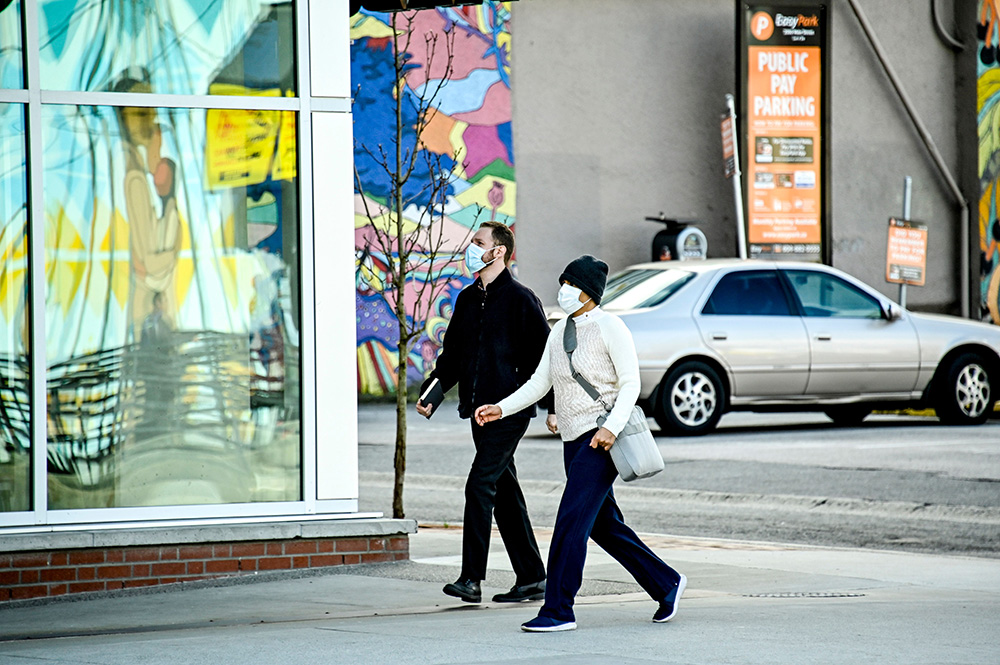Compiled by veteran medical journalist Brian Owens, this roundup of some of the newest science on the COVID-19 pandemic, straight from the scientific journals, is presented by Hakai Magazine in partnership with The Tyee.
Infection threshold for herd immunity can vary
To produce herd immunity, the proportion of the population that would need to be infected with SARS-CoV-2 is lower than expected — once researchers take things like the age and social activity of people into account. Most models suggest that 60 per cent of the population would need to be infected to create herd immunity. But the new mathematical model suggests that herd immunity could potentially be achieved with around 43 per cent of the population being immune. The researchers, however, stress that their modelling is mainly intended to demonstrate how population differences affect herd immunity, rather than being used to set a target for policymakers.
Gout medication proves effective in treating COVID-19
An anti-inflammatory medication called colchicine, usually used to treat gout, has shown promise as a treatment for COVID-19 in a small trial in Greece. The drug seems to help prevent the conditions of people already sick with COVID-19 from deteriorating further.
JAMA Network Open, June 24, 2020
Tuberculosis rates expected to spike as a result of the pandemic
Disruptions to health services and delays to diagnosis and treatment because of the COVID-19 pandemic are expected to cause global rates of tuberculosis to rise dramatically. Researchers estimate that there could be anywhere from 110,000 to 200,000 additional tuberculosis deaths over the next five years in China, India and South Africa — three countries that account for almost 40 per cent of global tuberculosis cases.
European Respiratory Journal, June 24, 2020

Timing is important with antibody tests
Antibody tests could have a useful role in determining whether someone has had COVID-19, but when the test is conducted is crucial. Researchers from Cochrane, a British charity that conducts independent reviews of medical evidence, looked at the research on antibody tests and found that they are most accurate when performed two or more weeks after symptoms start. There was not enough evidence to determine how effective they are more than five weeks after symptoms first appear.
Cochrane Systematic Review, June 25, 2020
COVID-19 raises the risk of stroke
Patients with COVID-19 are significantly more likely to suffer from strokes, even after other risk factors have been accounted for, according to a study in New York City. Researchers suggest that COVID-19 patients should be closely monitored for potential strokes.
American Journal of Neuroradiology, June 25, 2020
Developed countries in for a difficult economic recovery
Countries in the developed world, including Canada, should prepare for a long, slow economic recovery with prolonged periods of instability. An economic study used a theory called “critical slowing down,” which is usually applied in physics and ecology, to analyze long-term trends in global gross domestic product. It found that even before the pandemic, developed countries were experiencing larger recession cycles. The added stress of the COVID-19 crisis may result in one of the weakest and most unstable economic recoveries in recorded history.
Scientific Reports, June 26, 2020 ![]()
Read more: Health, Coronavirus, Science + Tech
















Tyee Commenting Guidelines
Comments that violate guidelines risk being deleted, and violations may result in a temporary or permanent user ban. Maintain the spirit of good conversation to stay in the discussion.
*Please note The Tyee is not a forum for spreading misinformation about COVID-19, denying its existence or minimizing its risk to public health.
Do:
Do not: